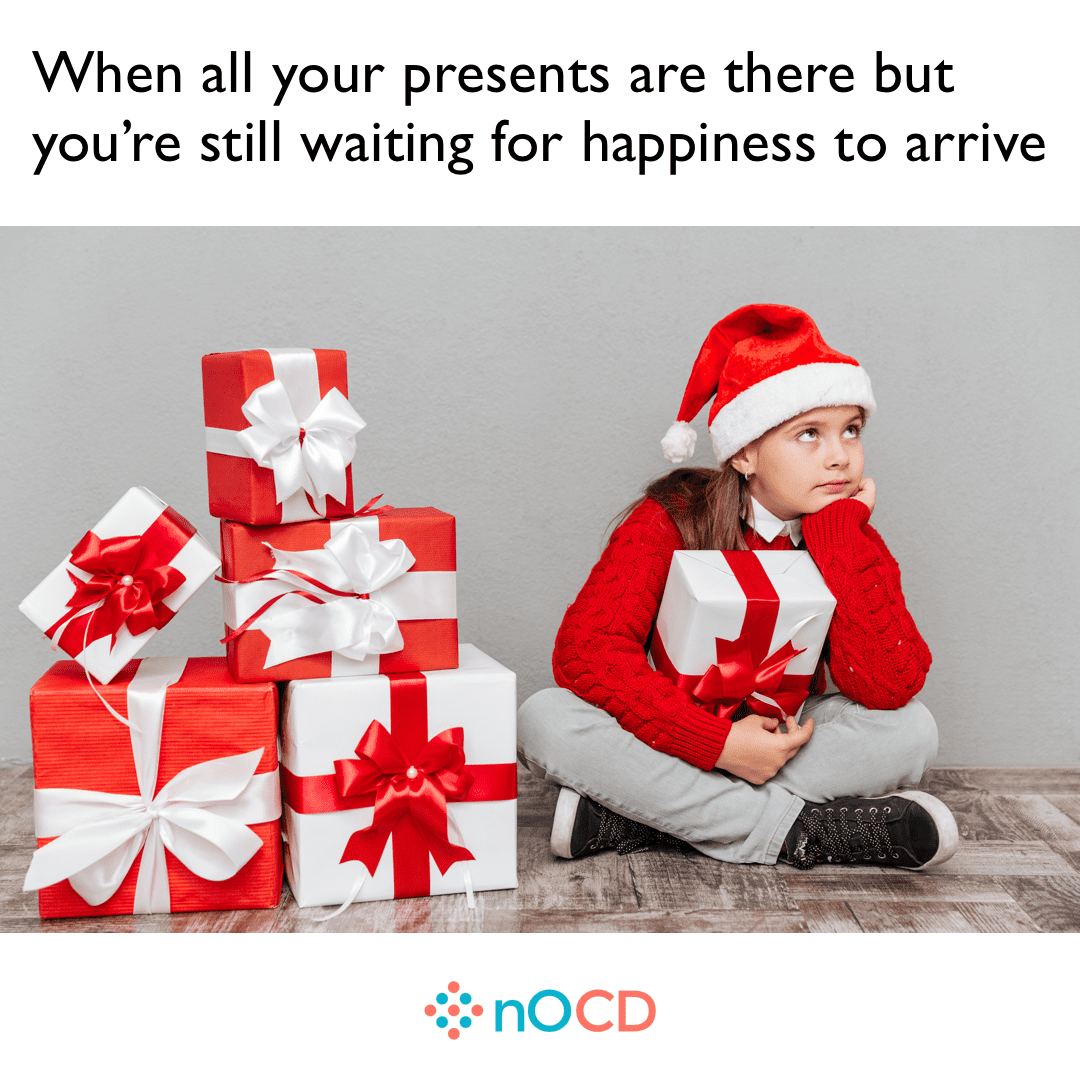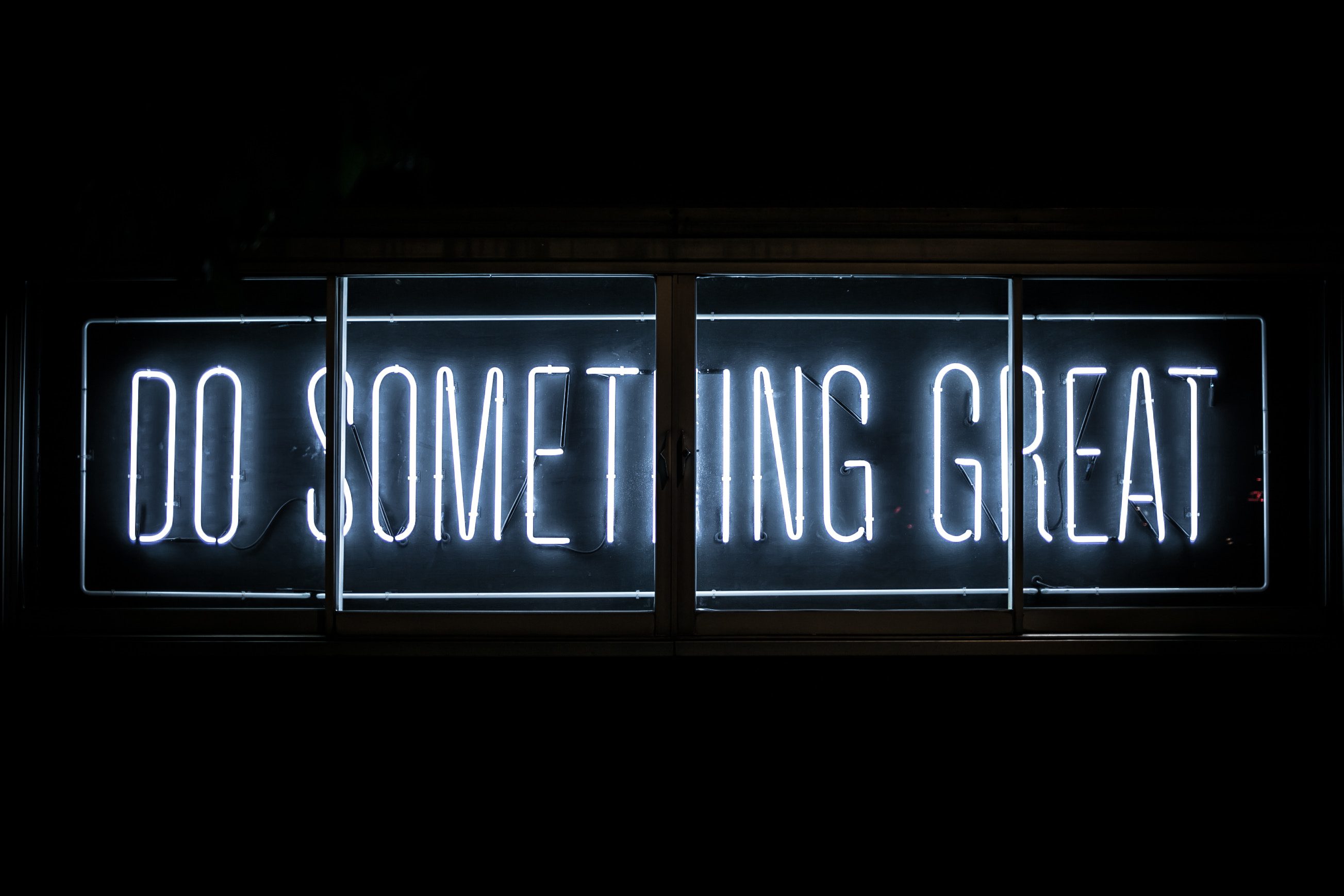We’re already in the midst of the holiday season, and although these celebrations can bring lots of joy, family and friends introduce lots of new variables that can exacerbate symptoms– even the ones we’re managing well in our daily lives. For those who aren’t with family and friends, holidays can create intense loneliness and sadness.
Whether you celebrate any winter holidays or not, it’s worth thinking up a few strategies to cope with more intense symptoms, whenever and wherever they emerge. These apply to holidays throughout the year.

Let’s say you’re at dinner or just sitting around with family, and somebody does something that triggers your obsessions. Maybe they say something about how relationships should feel, or touch a bowl of food before passing it to you. Simply staying in your chair feels almost unbearable. You’ve unwittingly been exposed to one of your triggers, and obsessions quickly flood your mind. These unplanned exposures aren’t a formal part of your treatment plan, but we’re calling them by the same name because they create a similar sequence of thoughts and sensations
When we asked Dr. Marisa Mazza, PsyD, how patients are actually supposed to do response prevention, she shared a helpful exercise with us about using Acceptance and Commitment Therapy (ACT) during an exposure:
- Exposures are meant to be a feeling process too, not just a thinking process. You can acknowledge thoughts as they come up by saying or picturing the thought, but then shift your attention to the sensation in your body.
- Notice if anything gets in the way of connecting with the feeling or sensation in your body, and see if you can let go of that barrier and refocus on the sensation. Do this each and every time you get pulled away from the feeling.
- After doing this for a few minutes, notice any changes that naturally occur with the feelings or thoughts.
- In order to reinforce what you learn, you may want to ask yourself these questions post-exposure practice:
What did I learn or notice about my own abilities from leaning into this experience and doing this exposure?
What did I notice about the feelings or sensations?
What did I notice about the thoughts? Are they true? Can I do more than what my mind says I am capable of?

Mindfulness is a great concept, and it’s increasingly backed by scientific evidence as a helpful tool for the general population. But people with good intentions frequently tell someone to just meditate and accept their thoughts. This is vague and unhelpful. It’s like throwing someone in the deep end and telling them to swim. How? In what way?
Dr. Mazza’s advice is a great start, and ACT offers a lot of other helpful tools for these unplanned exposures. As Dr. Ryan Vidrine, MD, tells us, one of the main goals of ACT is developing cognitive flexibility: “the ability to contact the present moment more fully as a conscious human being, and to change, increase, or continue behaviors such that they move us closer to our values in life.”
The first bit about contacting the present is clearly influenced by mindfulness. And the second part reveals another key aspect of ACT: defining your values so that you can make sure your behaviors are generally oriented toward the things you really care about. Maybe you value family, social life, physical health, learning, and so on. Values are one of the things that can motivate someone to get through an exposure (planned or unplanned) without relying on compulsions in the service of getting used to distress so we can spend our time and energy doing things we value rather than doing compulsions.

Our values can also direct us toward behaviors that benefit our overall mental health. Even when OCD is a primary concern, people may need to cope with other mental health conditions or simply deal with the difficulties that arise throughout our days. That’s why taking a multifaceted approach is wise, especially during the holidays when maintaining mental health gets tougher. Aiming to maintain holistic wellbeing with a decent diet, smaller quantities of alcohol (if you’re over 21 and planning to drink), and a bit of exercise can never hurt.
Thanks to Dr. Mazza for these helpful tips. You can learn more from her here.
Please share this article with anyone who might find it helpful! And let us know what you’re doing to stay healthy during the holidays on Twitter, Facebook, and Instagram– we’re @treatmyocd and we’d love to hear from you.
If you or someone you know is struggling with OCD, schedule a free call today with the NOCD clinical team to learn more about how a licensed therapist can help. ERP is most effective when the therapist conducting the treatment has experience with OCD and training in ERP. At NOCD, all therapists specialize in OCD and receive ERP-specific training.

